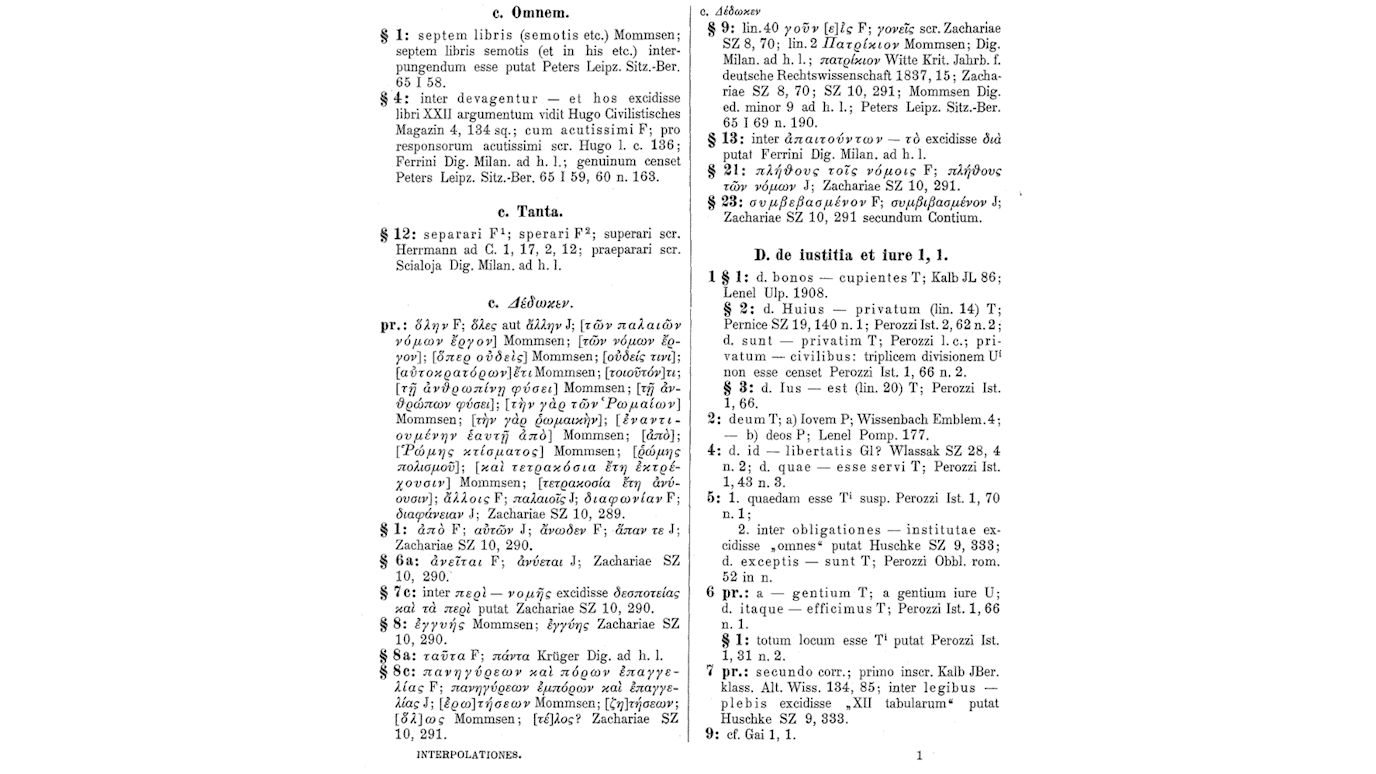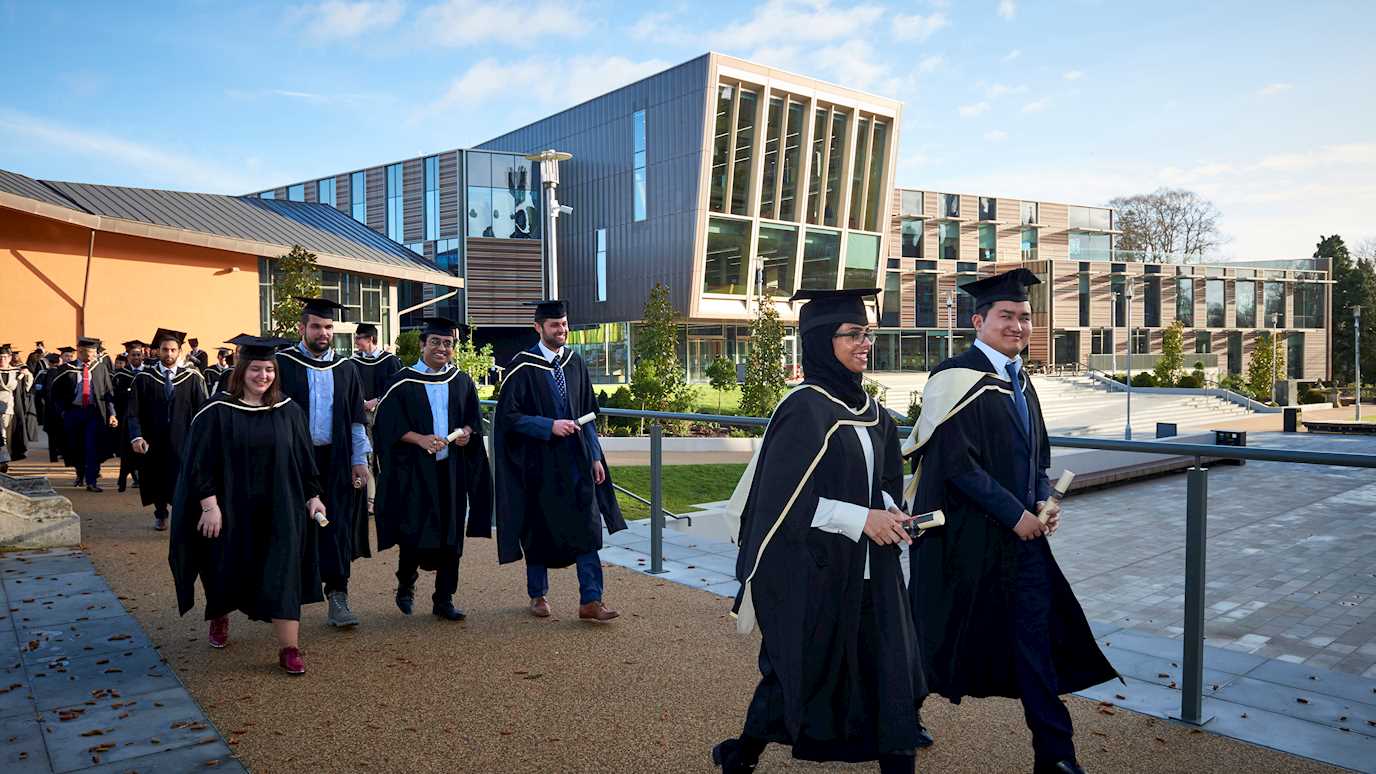The Index 2.0 project is seeking to recruit ten motivated and enthusiastic students to participate in a one-day practical workshop on Thursday 20 April 2023 on the Royal Holloway campus in Egham, only a short train journey from central London. This is a unique opportunity for students who want to gain hands-on experience with Roman law and digital humanities. Please apply by Friday 17 March 2023 by completing the form below. Successful applicants will be notified by Monday 27 March 2023.
Application form: https://bit.ly/index2_0-rhul


Background
The Index 2.0 project aims to revive the Index Interpolationum, a giant work from the early 20th century that brings together centuries of scholarship on Emperor Justinian's compendium of ancient Roman law, the Digest (533 CE). The Index closely examines each line of the Digest, considering their authenticity, and provides alternative readings, which may greatly affect our understanding of ancient Roman law.
Index 2.0
The goal of the Index 2.0 project is to bring the Index Interpolationum into the digital age. By making the Digest text interactive and allowing users to switch between different readings of the sources, it will enable them to reconstruct the text, style, and doctrine of ancient jurists, as well as record their own insights about textual authenticity on a platform that will become an online meeting point of Roman legal scholarship. The project was envisaged by an international team of Roman law researchers, Marton Ribary (Royal Holloway), Joanna Kulawiak-Cyrankowska (Lodz), Giuseppe Di Donato and Craig Anderson (both Edinburgh Napier) in consultation with, among others, David Natal Villazala (Royal Holloway) and Benet Salway (UCL). The current workshop received funding from Royal Holloway's Reid Research Fund.


Workshop
The one-day workshop will test the feasibility of creating a relational database which makes the digital revival of the Index Interpolationum possible. Participants will attend an information session about the Index and its extraordinary importance to Roman law research. We shall discuss possible case studies in the history and doctrine of Roman law which the envisioned digital version will make possible. Participants will receive training in how to decode the shorthand of text critical comments in the printed version of the Index and how to then encode them to a relational database with a custom-made data entry interface created with Google Sheets, data validation, and Google AppScript. On either side of the lunch break, participants will test the data entry interface with and without supervision. In a concluding feedback session, participants are invited to discuss the experience and make recommendations for improving the ease and speed of the process.
Below is the schedule of the day.
9.00-9.30: Participants arrive (welcome coffee)
9.30-11.30: First session: Presentation and training
11.30-12.00: Coffee break
12.00-13.00: Second session: Supervised data entry
13.00-14.00: Lunch
14.00-16.00: Third session: Unsupervised data entry
16.00-16.30: Coffee break
16.30-17.30: Fourth session: Discussion and feedback
17.30-18.00: Participants leave
Ideal applicant
Any students from the member institutions of the University of London network at any level – from first-year undergraduates to final-year PhD candidates – are eligible to apply. The ideal applicant has at least a basic command of the Latin language and an interest in one or more of the following areas: Roman law, ancient history, text criticism and digital humanities. Applicants are asked to provide a statement about their Latin language skills (ca. 50 words) and a motivation statement explaining their interest (ca. 250 words) as part of the application process.
Financial incentives
The one-day workshop is fully catered. Participants will receive refreshments, including a buffet lunch. Travel costs of up to £21.80 per person (London-Egham return fare) will be reimbursed. Additionally, participants will receive a £50 Amazon voucher in appreciation of their contribution to the workshop.
Outcome
Workshop participants will learn how to consult the Index Interpolationum and understand the benefits of a digitally published text of the Digest enriched with text critical comments. Participants will observe a digital humanities project in action and, in particular, how a computer-assisted system can contribute to the reconstruction of Roman law, the doctrine and style of Roman jurists. They will have the opportunity to leave their mark on Roman law research.
Application form: https://bit.ly/index2_0-rhul

































